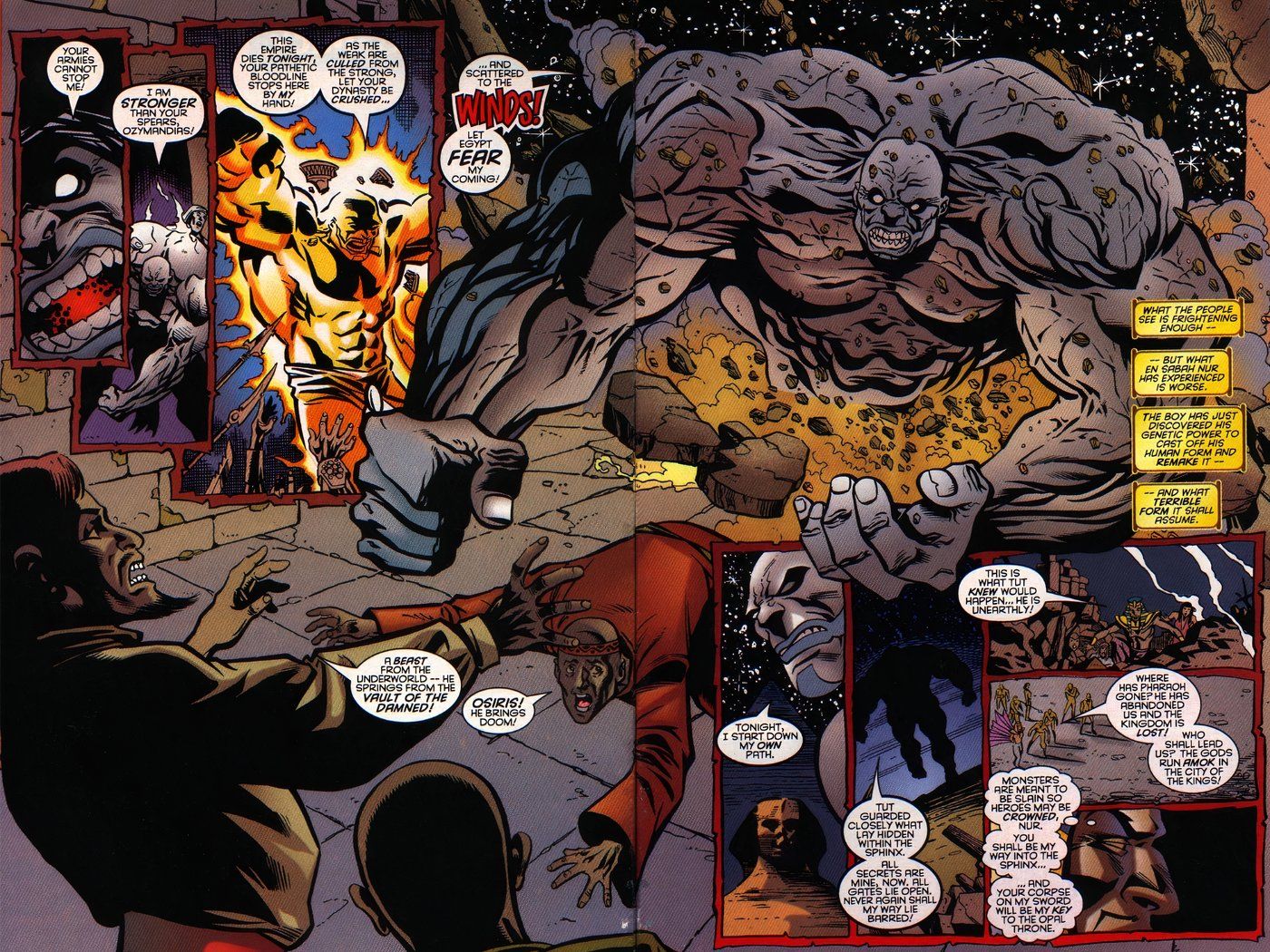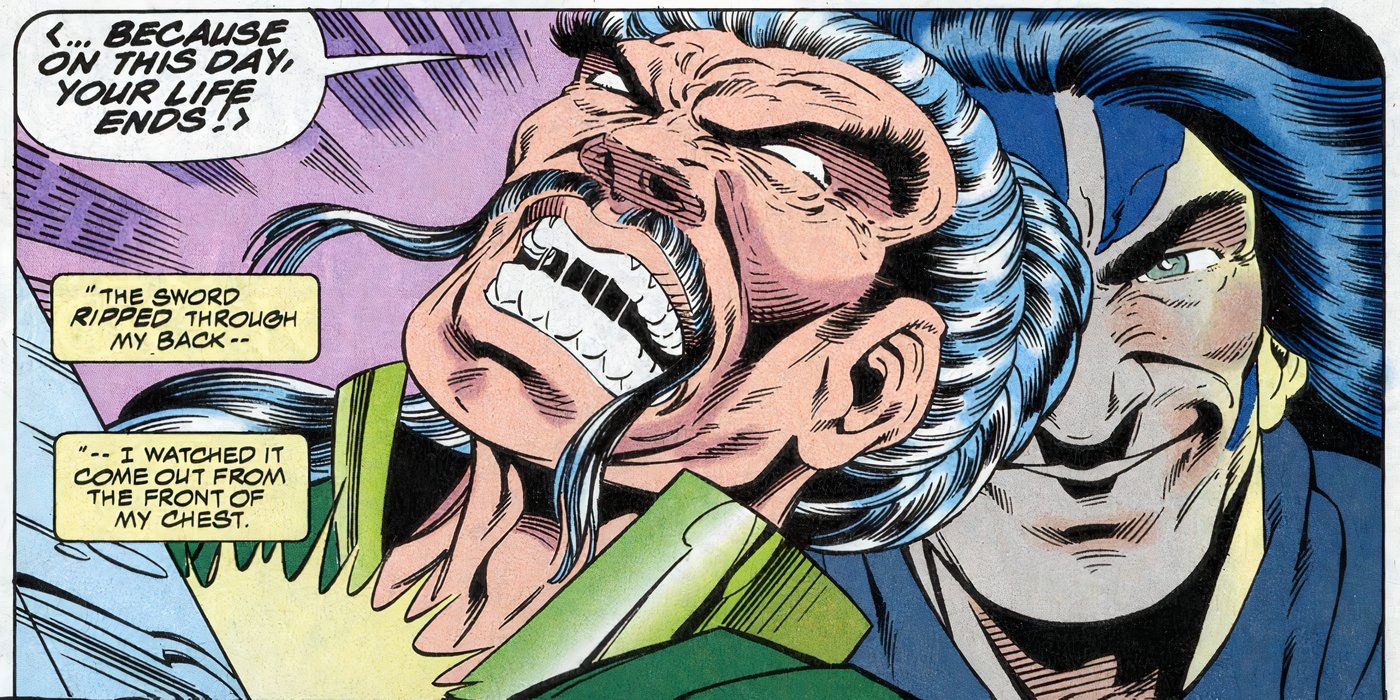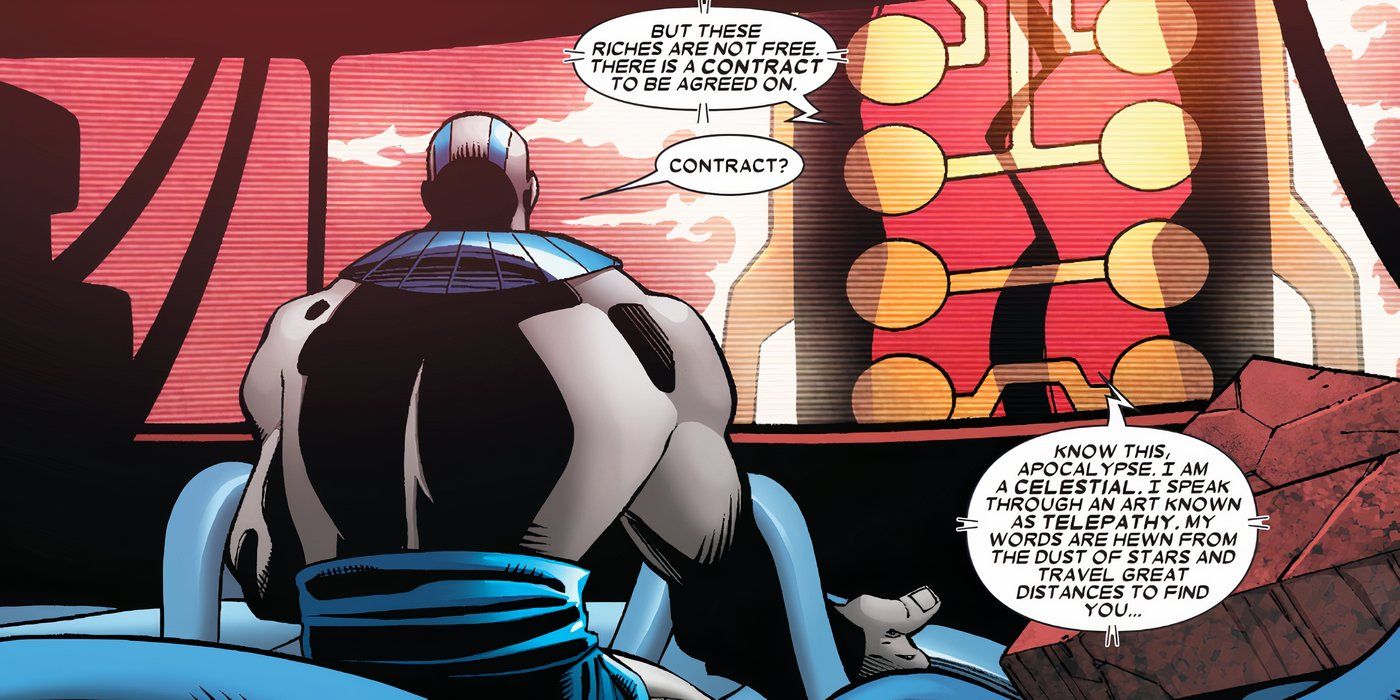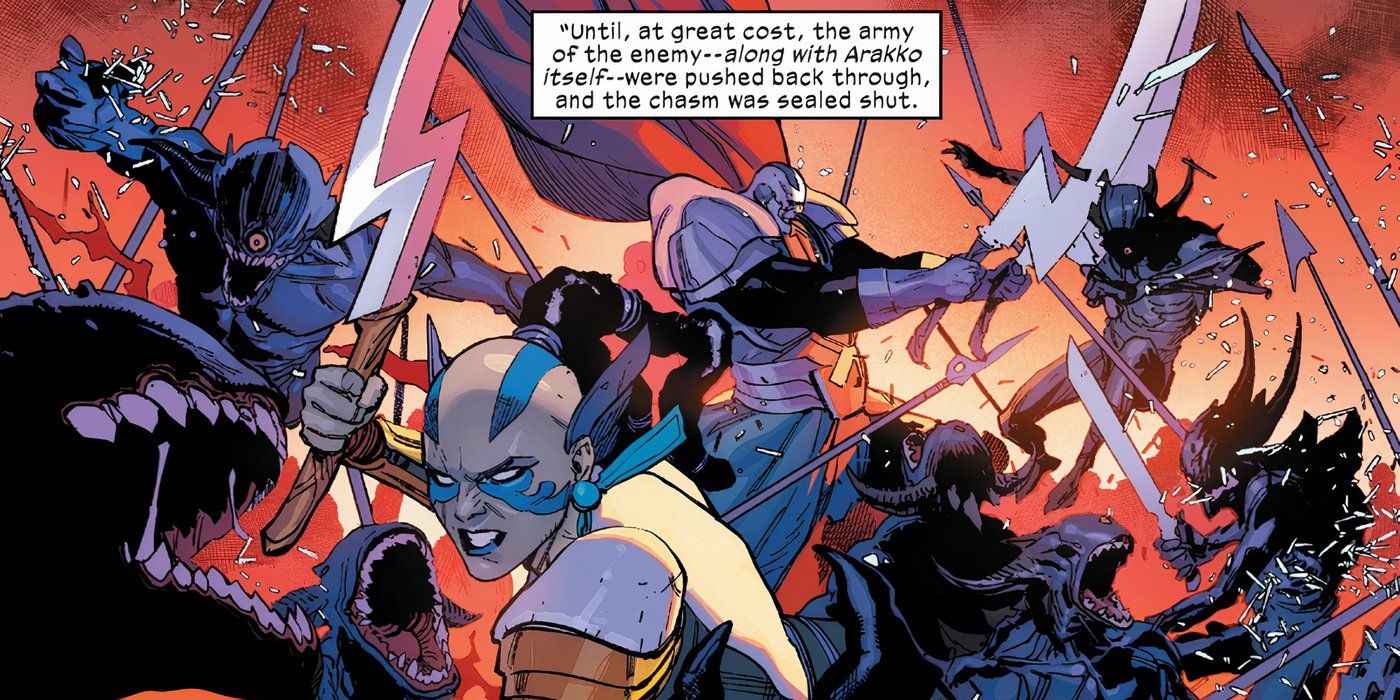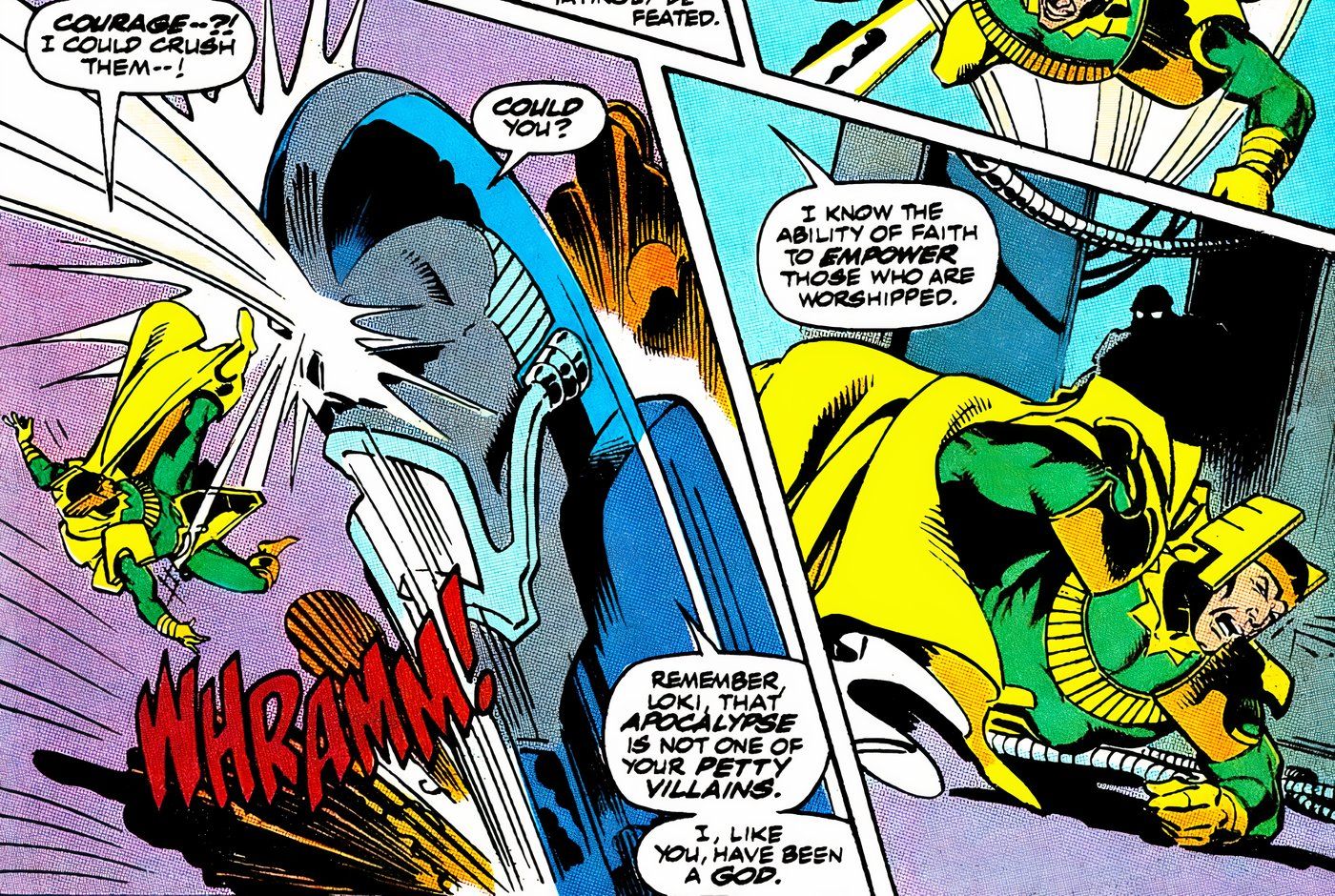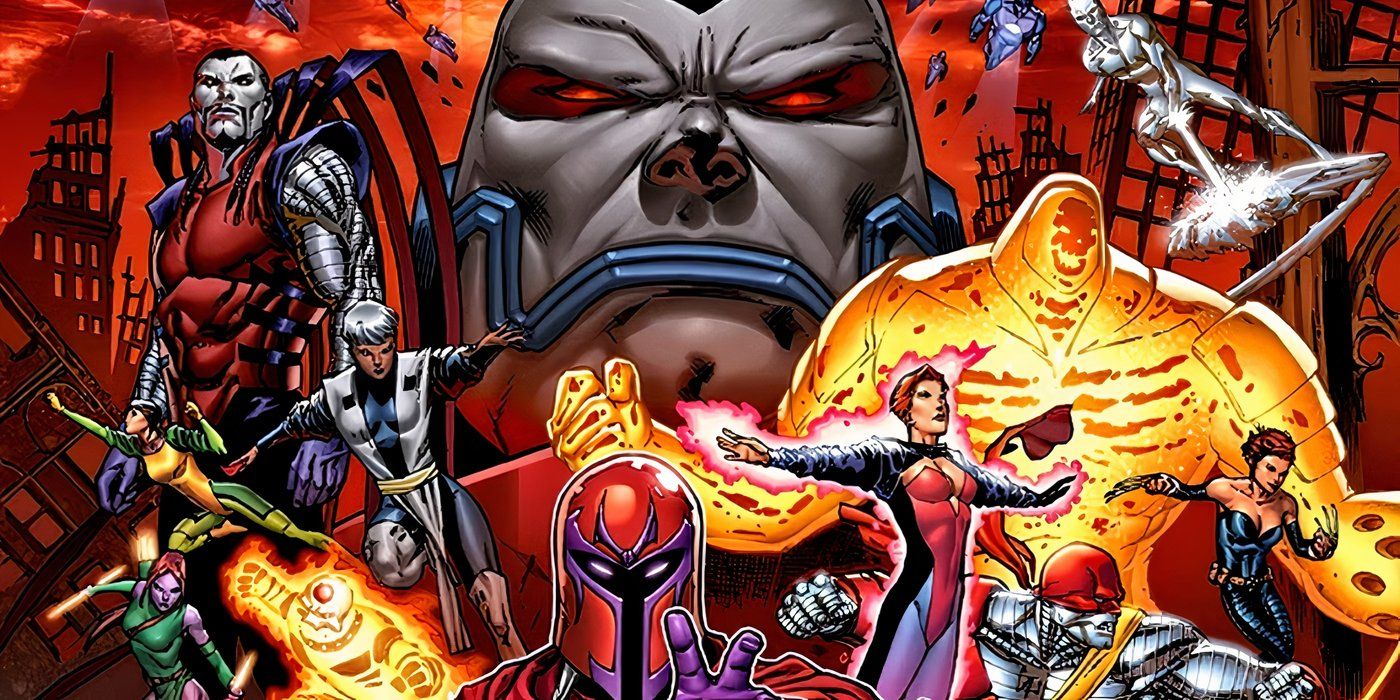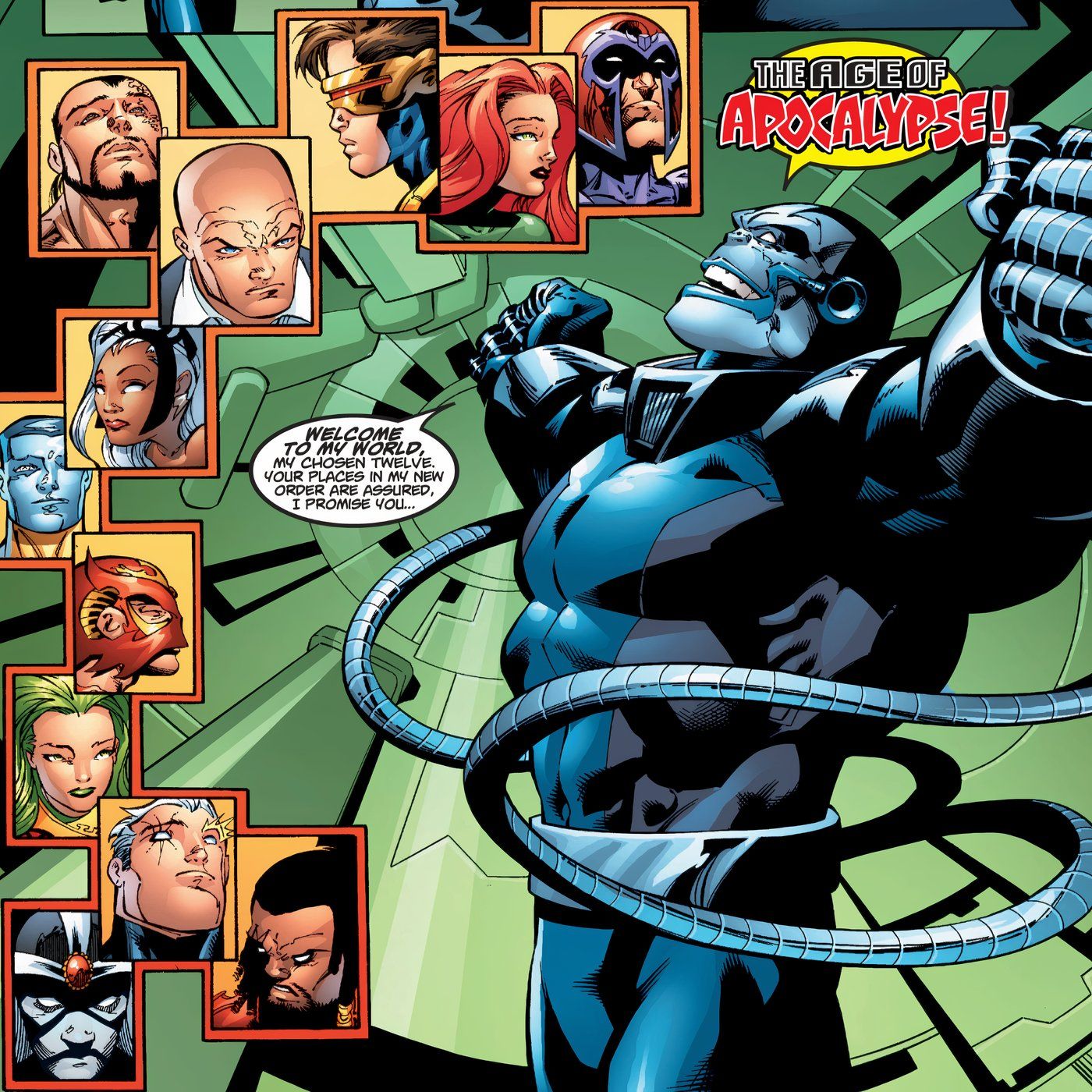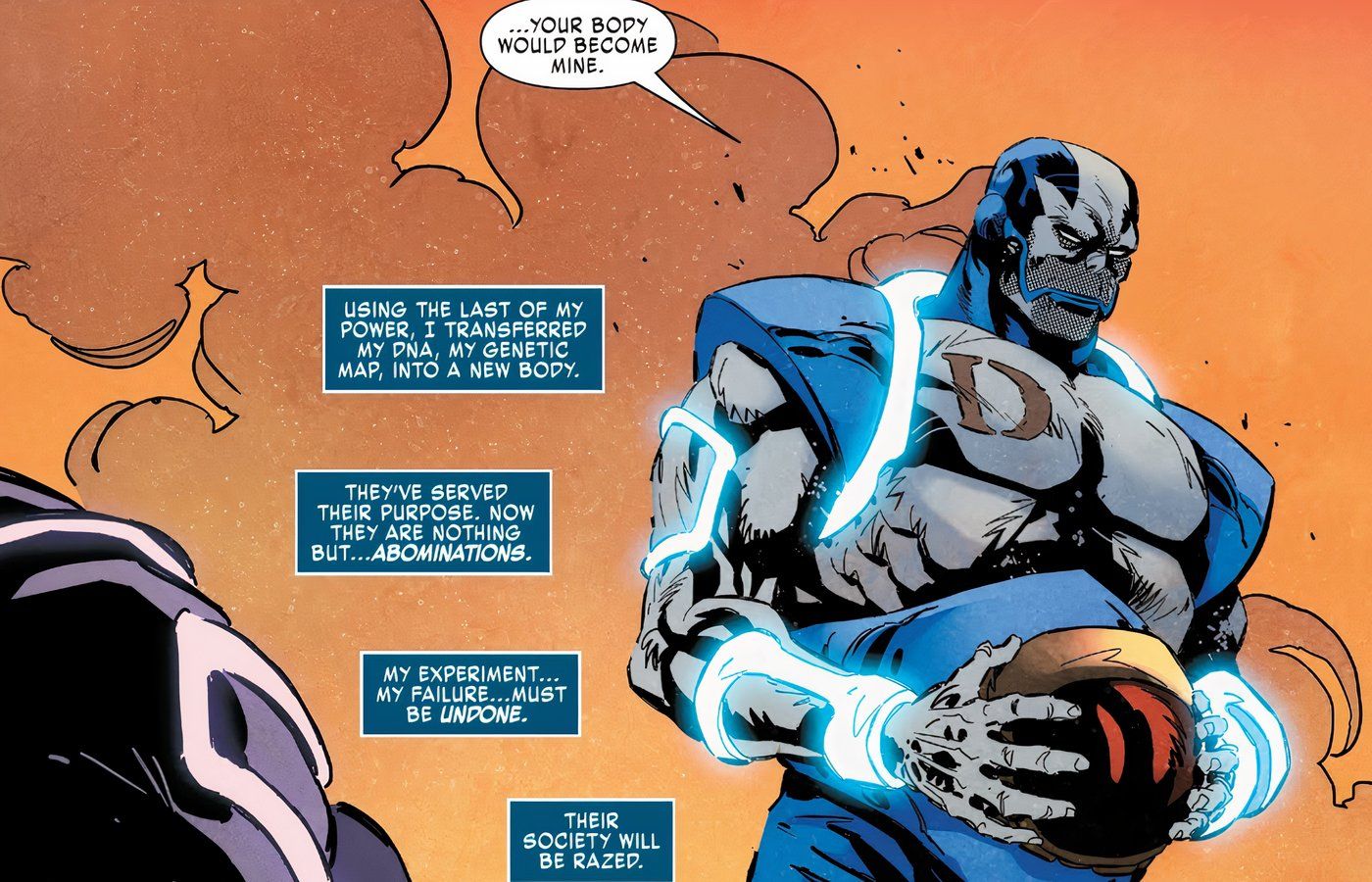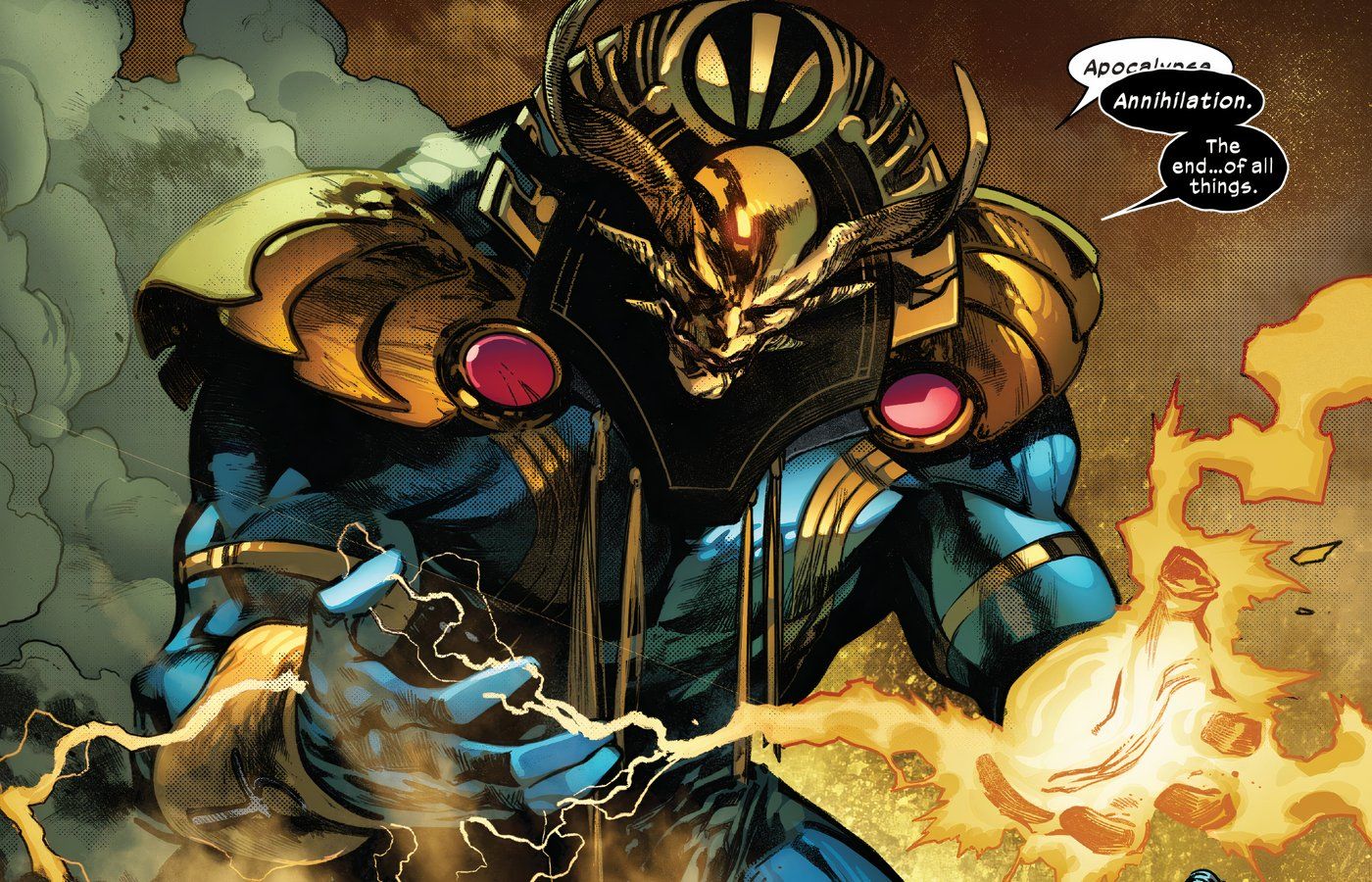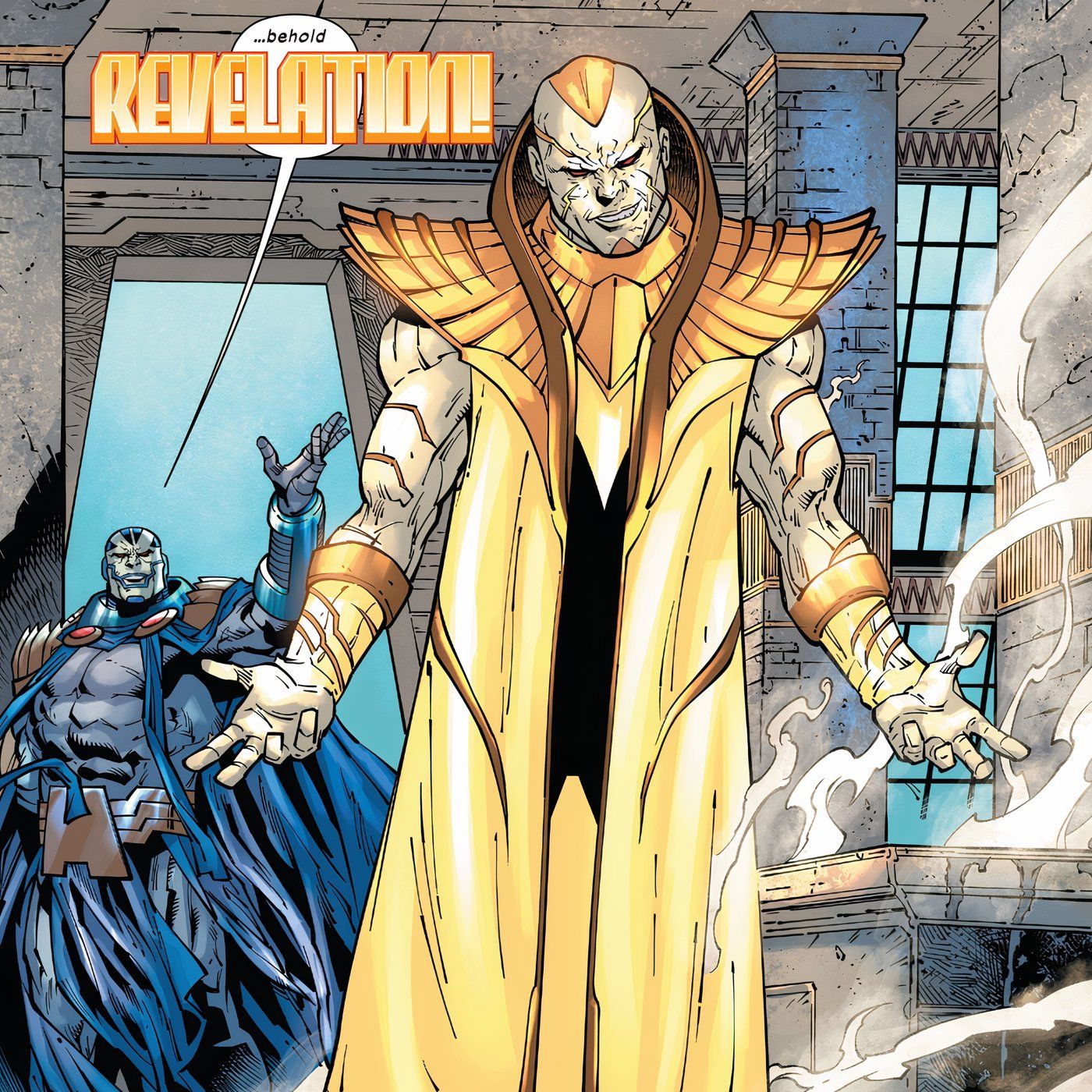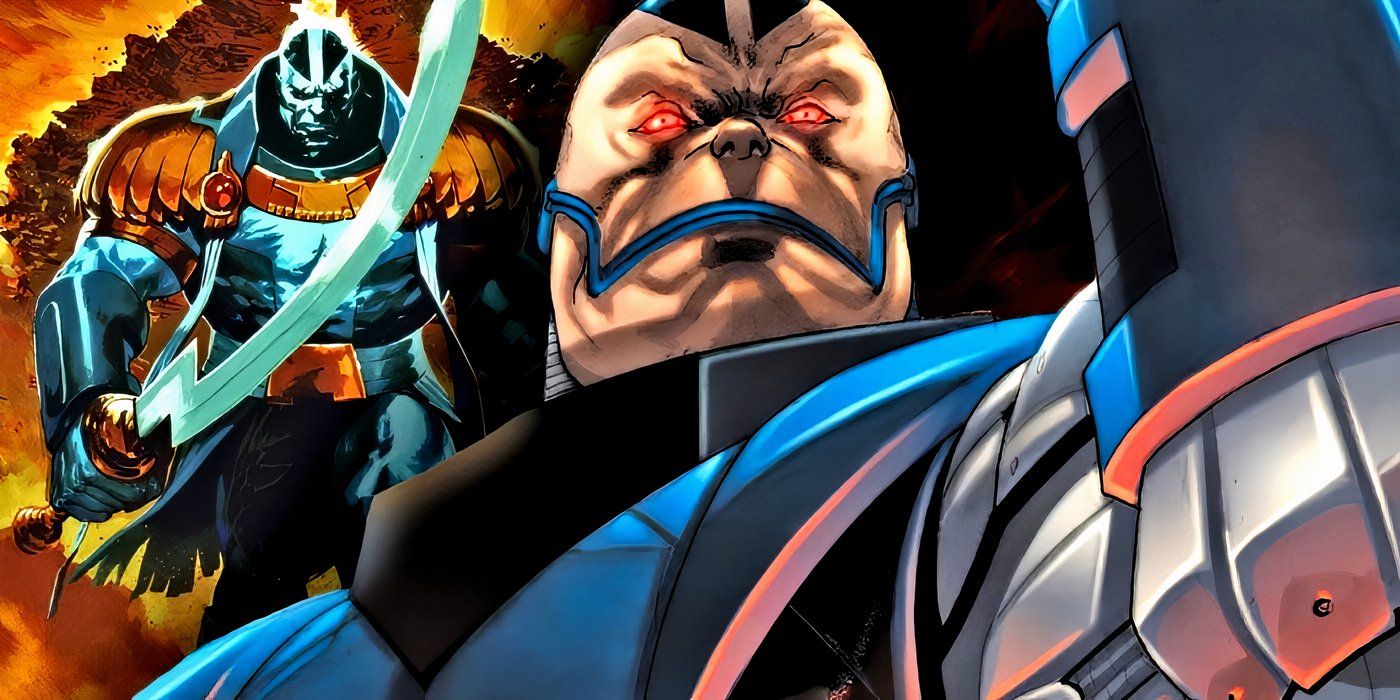
En Sabah Nur also known as Apocalypse is a terrifying force of nature within the Marvel Universe and stands out as one of the greatest X-Men villains of all time. Even when Apocalypse was temporarily on the side of the heroic mutants, he was still a pillar of immense strength that everyone was right to be wary of. Apocalypse has had no shortage of moments in Marvel Comics to earn this reputation, as he's not just a powerful mutant, he's also a literal god-like powerhouse.
Apocalypse was born in Ancient Egypt, welcomed by a clan of warriors who taught him the mantra that he would carry for the rest of his life: only the strong survive. Apocalypse believes in the survival of the fittest with everything in his being. The reason he's such a great villain is that he considers himself the strongest and works to prove it any chance he gets. Indeed, Revelation is an icon, with feats of power and memorable quotes that convey just that. Here are 10 Times Apocalypse Proved He's Not Just One X-Men icon, but a powerful Marvel god!
10
The Apocalypse brought Rama-Tut to his knees and conquered Ancient Egypt
Rise of the Apocalypse by Terry Kavanagh, James Felder, Adam Pollina and Anthony Williams
Rama-Tut, also known as Kang the Conqueror, traveled back in time to become a Pharaoh of Ancient Egypt with the sole purpose of making Apocalypse his personal slave. Being from the future, Rama-Tut knew how powerful Apocalypse would become and wanted to make En Sabah Nur his personal weapon. However, Kang underestimated how much of a threat a young Apocalypse would be.
After coming to terms with the full extent of his own mutation, Apocalypse attacks Rama-Tut's royal palace and reduces his kingdom to rubble. Interestingly, Rama-Tut was fighting the time-displaced Fantastic Four at that moment, resulting in his escape through time, so Apocalypse didn't get the chance to crush Rama-Tut like he wanted. However, the damage Apocalypse causes not only decimates Rama-Tut's kingdom, but also sets the stage for the rest of Apocalypse's career.
9
Apocalypse defeated fellow outsider Garbha-Hsien like it was nothing
X Force #37 by Fabian Nicieza and Paul Pelletier
After destroying Rama-Tut's kingdom, Apocalypse decides to travel the world, seeking all avenues of power, which leads him to one of the oldest Outsiders in the Marvel Universe: Garbha-Hsien. Long ago, Garbha-Hsien found an abandoned Celestial ship and used its technology to serve his own purposes – and Apocalypse intended to make the ship his own.
Apocalypse killed Garbha-Hsien by stabbing him in the back with his sword. The Outsider did not foresee this attack as he was supposed to be an immortal being who cannot be harmed by any enemy. However, little did Garbha-Hsien know that Apocalypse is also external, making Garbha-Hsien vulnerable to his attack. This is one of the first confirmations that Apocalypse is more than just a powerful mutant, but a rare subspecies that is practically impossible to kill.
8
Apocalypse accepts a celestial contract, becoming like a cosmic god
X-Men Vol. 2 #186 by Peter Milligan and Salvador Larroca
After Apocalypse defeated Garbha-Hsien, he gained access to the Celestial ship that the Outer was draining power and technology from. Upon making it his own, Apocalypse hears a voice of a Celestial within his own mind. The Celestial tells Apocalypse that he can make him stronger than En Sabah Nur ever thought possible, and all Apocalypse would have to do is agree to be called by the Celestial at a later date and follow the cosmic god's orders. when that day comes – no matter what they are.
Apocalypse accepts the Celestial's terms and enters into a binding contract with the cosmic god. This is how Apocalypse gained the iconic armor fans are familiar with today, and it's largely why he's revered as one of the most powerful villains in history. X-Men canon, making this moment an integral part of Apocalypse's metamorphosis into a Marvel god early in his career.
7
Apocalypse divided Okkara Island and drove back the demons of annihilation
X-Men Vol. 5 #12 by Jonathan Hickman and Leinil Francis Yu
An undisclosed period of time after defeating Garbha-Hsien and fusing his body with Celestial technology, Apocalypse marries the island's mutant leader, Okkara, named Genesis, and together, they have four children who become the first Four Horsemen of the Apocalypse. Apocalypse and his family planned to usher in a new era for mutants on Earth. But then, Okkara splits where a portal to another realm opens, and from this gap emerge hordes of demons controlled by the evil Annihilation.
Apocalypse and his family fight these demons, but it soon becomes clear that they are too much for them to handle. Then, Genesis and his children travel through the breach as Apocalypse closes the portal, separating the island and leaving Apocalypse on Earth away from his family. Apocalypse effectively saves the world and he makes a painful sacrifice to do so.
6
Apocalypse proved his god-level strength by defeating one: Loki
X Factor #50 by Louise Simonson and Terry Shoemaker
Apocalypse spent a lot of time in his youth accumulating divine power, but he wouldn't be able to put it to the test until he faced a literal god – and actually came out victorious. In X Factor #50, Apocalypse comes face to face with Loki, who has been manipulating heroes and villains throughout this story arc. Apocalypse, however, was not foolish and was not deceived by the God of Mischief. Then, Apocalypse attacks Loki, and using his mutation plus the Celestial technology he was surrounded by, Apocalypse forces Loki to retreat, claiming victory over a Marvel god.
This wouldn't be the first time Apocalypse has tangled with an Asgardian, as he has fought Thor many years before this moment. However, Thor eventually defeats Apocalypse, meaning that En Sabah Nur would not truly prove his worth as an honorary god until his victory over Loki.
5
The Apocalypse conquered the world during the Age of Apocalypse
X-Men: Alpha #1 by Scott Lobdell, Roger Cruz and Steve Epting
In a feat that is perhaps Apocalypse's most iconic to date, En Sabah Nur takes over most of the world following the death of Charles Xavier (who was accidentally killed in the past by his time-traveling son Legion), triggering the Age of the Apocalypse. Apocalypse makes all of North America his kingdom, assigning certain territories to different villains while systematically killing humans and experimenting on mutants to make them stronger. Apocalypse ushers in an era for mutants to rule the world, as long as they are willing to bend the knee to their rule.
THE Age of Apocalypse is a dark vision of what would happen if En Sabah Nur truly won: a kingdom built on the graves of fallen heroes around the world, with almost no one alive stronger than Apocalypse himself. Apocalypse truly proved himself to be a divine powerhouse in this story, capable of conquering entire worlds.
4
Revelation successfully reunites the twelve after generations of planning
Mysterious X-Men #377 by Alan Davis, Tom Raney and Terry Kavanagh
While Apocalypse is, in fact, incredibly powerful because of his natural mutation and his Celestial upgrade, he is also shockingly limited, as his physical body ages at a fairly normal rate. This is why Apocalypse has to choose new host bodies, which then become distorted in his image when they are possessed. The more powerful the host, the less necessary it is to find a new one, which is a sick line of reasoning that leads to X-Men story arc, The Twelve.
Through the ages, Apocalypse helped guide certain bloodlines to produce the Twelve, who are exceptionally powerful mutants suitable for Apocalypse to possess and draw power from. This story could have ushered in another Age of Apocalypse on Earth-616, but the true god-level feat was Apocalypse's foresight and ability to effectively create these mutants for this moment – literally playing god for his own benefit.
3
Apocalypse finally finds an immortal body to inhabit
X-Men: Black – Juggernaut “Apocalypse in Degeneration” Part 4 by Zac Thompson, Lonnie Nadler and Geraldo Borges
Years after Apocalypse's plan to use the Twelve to inhabit a new permanent body capable of channeling their divine power without eventually breaking down, En Sabah Nur finally finds a way to achieve that goal. This time, instead of manipulating events throughout history to ensure the birth of certain mutants, Apocalypse decides to create his own genetically enhanced 'mutants'. Although the process has some setbacks (including his creations forming their own civilization and Apocalypse himself becoming an ape), En Sabah Nur finally possesses one of these bodies, and with that, his need to regularly find hosts ceases to exist. .
After this moment, Apocalypse effectively eliminates one of his biggest flaws that he has lived with for thousands of years, which in turn makes him a more capable and powerful warrior – and even more of a 'Marvel god'.
2
Apocalypse defeated Genesis and became the new annihilation
X of Swords by Jonathan Hickman and Tini Howard
Thousands of years after losing his family to the demonic forces of Annihilation, Apocalypse travels to the otherworldly hellscape where his wife and children were trapped to free them from their interdimensional prison. However, Apocalypse discovers that not everything is as it seems and that a new 'Annihilation' has risen to power in this dark world: his wife, Genesis. A great tournament ensues, which keeps the fate of several worlds in the balance, and in the end, Apocalypse must face his wife in battle.
Apocalypse defeats Genesis and takes the helmet of Annihilation for himself, claiming authority over the demons that the title 'Annihilation' commands. With this victory, Apocalypse not only frees his wife from the corruption of Annihilation after reuniting with his long-lost family, but also becomes a literal demonic god.
1
Apocalypse Proved Why He's a God-Level X-Men Villain by Naming an Heir
X-Men: Heir of the Apocalypse by Steve Foxe and Netho Diaz
Apocalypse's true purpose on Earth was not just to seek power for its own sake, but to make mutants as strong as possible to one day inherit Earth. That's why he accepted the Celestial contract, that's why he and his wife protected Okkara with their lives, and that's why Apocalypse made it his mission to stop any mutants who opposed him to make room for those willing to do the same. that was necessary. The Age of Apocalypse was a possible outcome, but after the Krakoan Age, Apocalypse discovered a new way to ensure the future of mutantkind: appoint an heir.
Apocalypse named Cypher as his heir, renaming him Revelation as he did so. This way, the mutants had a new leader to follow, someone who would pave the way for the mutants through diplomacy rather than force. Apocalypse's mission on Earth is almost divine in nature, which is emphasized by him choosing an heir, cementing the idea that Apocalypse It's more than just one X-Men icon, but a Marvel god.
